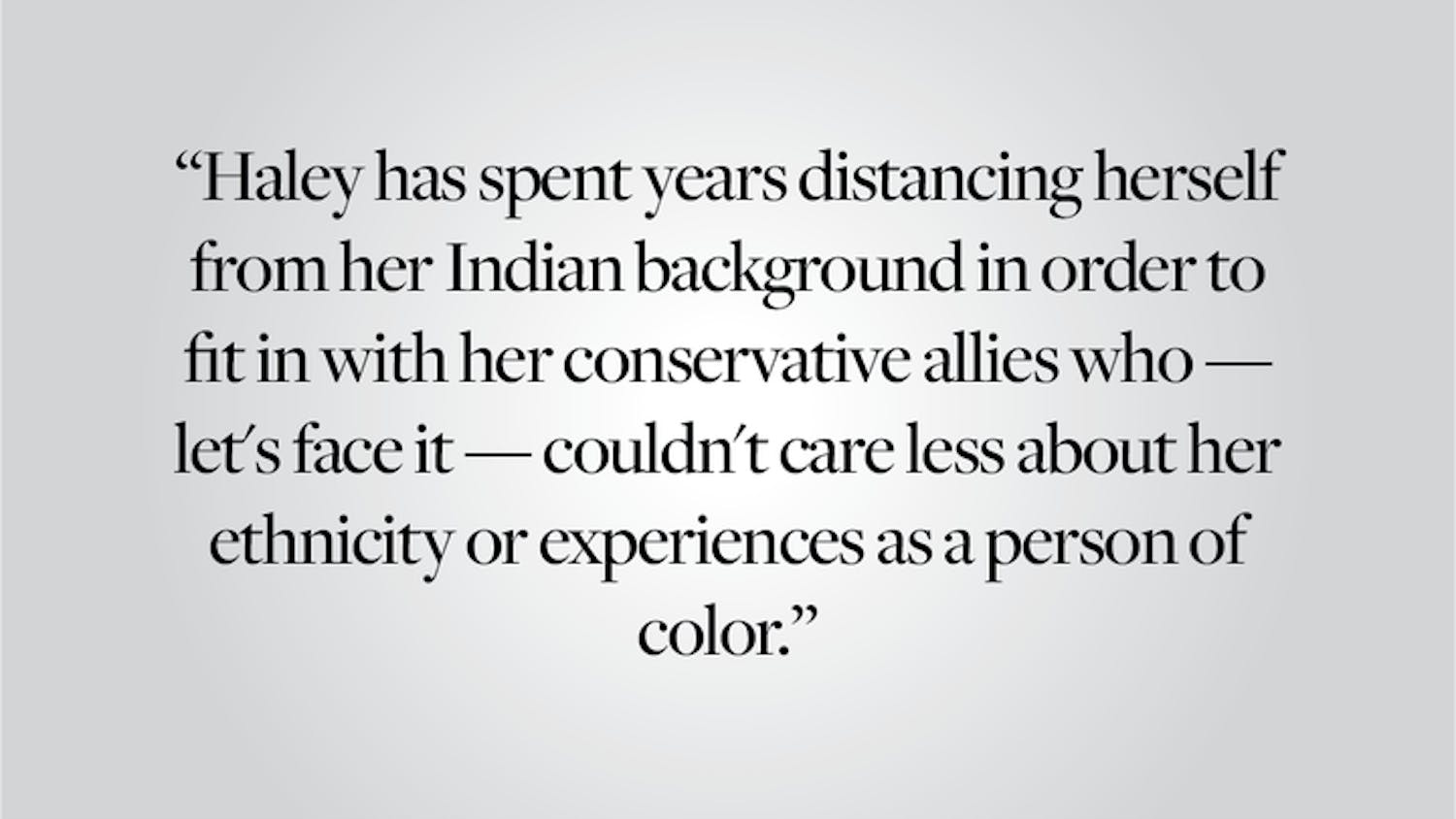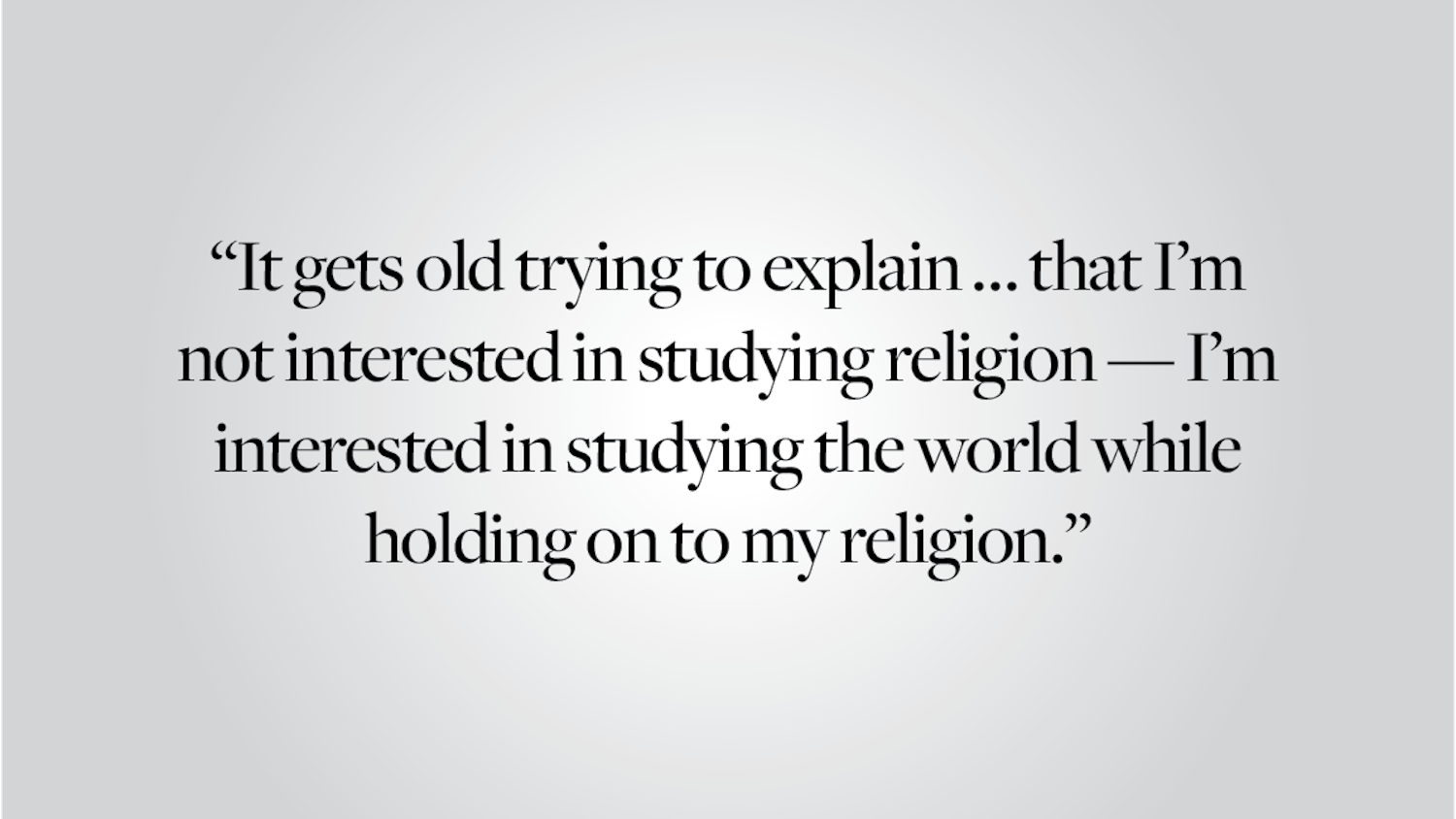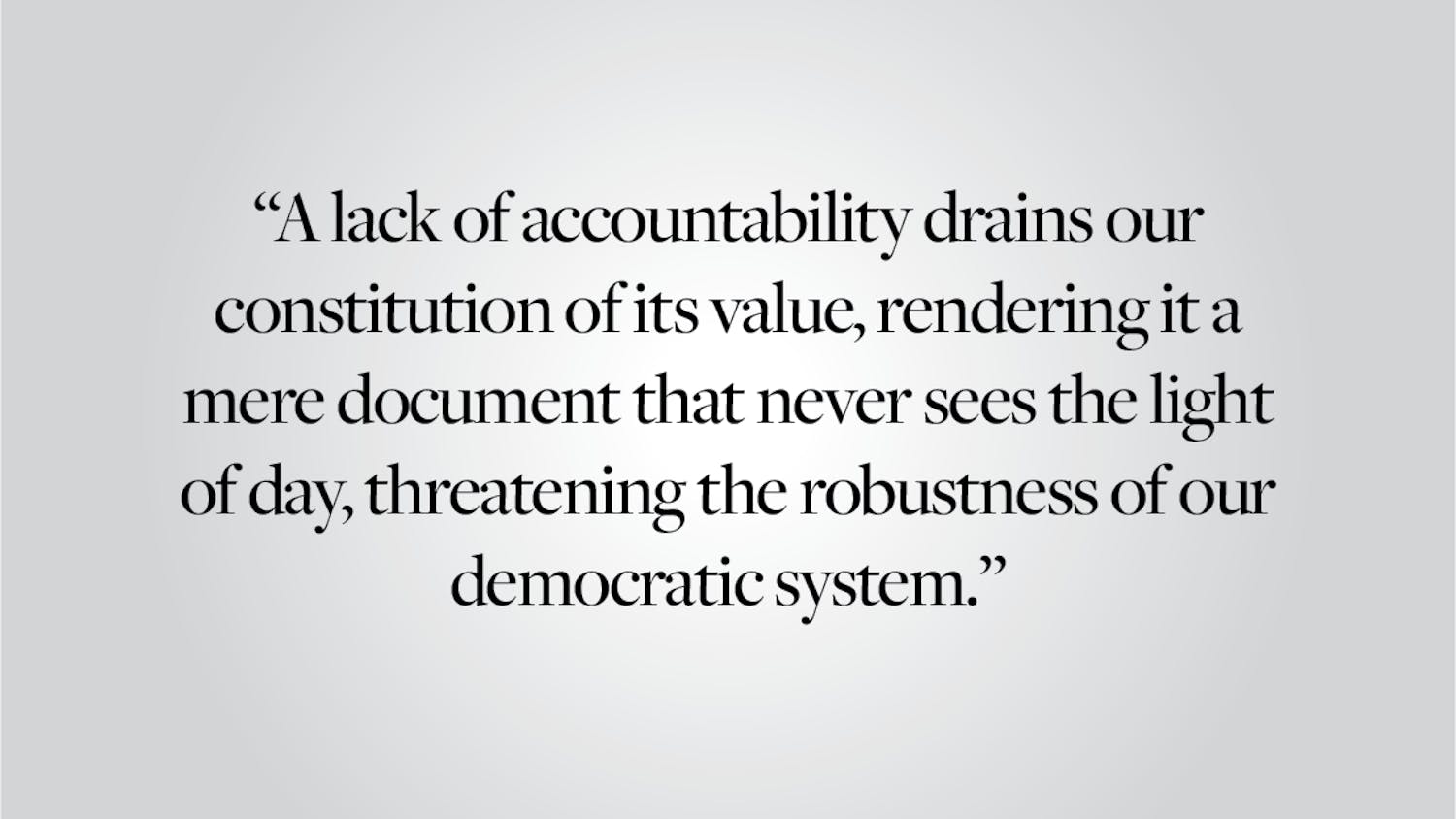In recent days we have received three petitions — from faculty members, alums and graduate students — urging Brown to offer sanctuary to protect undocumented members of the Brown community from deportation. The first of these was published Monday in the The Herald (“Faculty, staff: Make Brown a sanctuary,” Nov. 14).
We join our faculty members, students and alums in expressing the feelings of deep empathy and desire to protect members of our community that have motivated these petitions. Many of the statements that the president-elect articulated during the campaign with regard to immigration and undocumented members of communities across the United States have prompted fear and anxiety.
Even before the recent election, Brown had taken concrete actions to increase support for undocumented students and students enrolled in the federal Deferred Action for Childhood Arrivals program. These measures have included providing increased guidance and support through a faculty advisor; offering services through the new First-Generation College and Low-income Student Center; and eliminating the distinction between domestic applicants and undocumented and DACA-status students in the admission process — continuing to meet 100 percent of these students’ demonstrated financial need at Brown.
Now, the potential risks to undocumented and DACA-status students are heightened, given possible changes in policy and practice that may come under the new administration. For example, President-Elect Donald Trump has stated that among his first actions as president would be to rescind many executive orders enacted by President Barack Obama’s administration, including the one that established the DACA program.
Though we do not know what specific changes may occur, Brown will continue to support members of our community to the fullest extent possible while complying with the law. This support includes not taking any actions that could place individual members of our community at risk of deportation.
In making a request for Brown to establish a sanctuary protocol, the signatories of the petitions have referenced a 2011 U.S. Immigration and Customs Enforcement memo that contains a discussion of enforcement priorities of the current administration. The petitions suggest that Brown (and other universities and colleges) may have a special ability to prevent law enforcement officials from entering campus to enforce immigration policy.
Based on consultation with legal counsel, we have come to understand that private universities and colleges do not have such protection to offer legal sanctuary from members of law enforcement or Immigration and Customs Enforcement. While we wish we could offer absolute protection to members of our community who are threatened by possible changes in policy, it would be irresponsible to promise protections that we cannot legally deliver.
The University feels strongly that we must not take any action that would jeopardize the status of undocumented members of our community.
We care deeply about the welfare of our community members who are undocumented or hold DACA status and continue to provide them with as much information as we can make available regarding the law and potential outcomes if policies change under the new administration. In the days and weeks ahead, we will work with elected officials locally and nationally to understand any potential policy changes or legislative efforts, to advocate for maintaining the DACA Program and to promote policies that are fair and supportive of our students and their families.
We are bringing legal experts to campus to advise students, faculty members and staff members of their rights, responsibilities and potential options. And provided that DACA continues to be an option, we will assist current students in applying for DACA status or renewal if they choose (including providing financial assistance if needed), allowing them to pursue eligibility for a Social Security Number, a stay of deportation and work authorization.
Threats of deportation personally affect many individuals at Brown, their friends and families and — as a result — our entire campus. We are fully dedicated to continuing to work with affected members of our community in the coming months to ensure their safety and security.
Christina Paxson P’19 is the president of Brown University and Richard M. Locke P’17 is Brown’s provost. They can be reached at christina_paxson@brown.edu and richard_locke@brown.edu, respectively. Please send responses to this opinion to letters@browndailyherald.com and other op-eds to opinions@browndailyherald.com.




